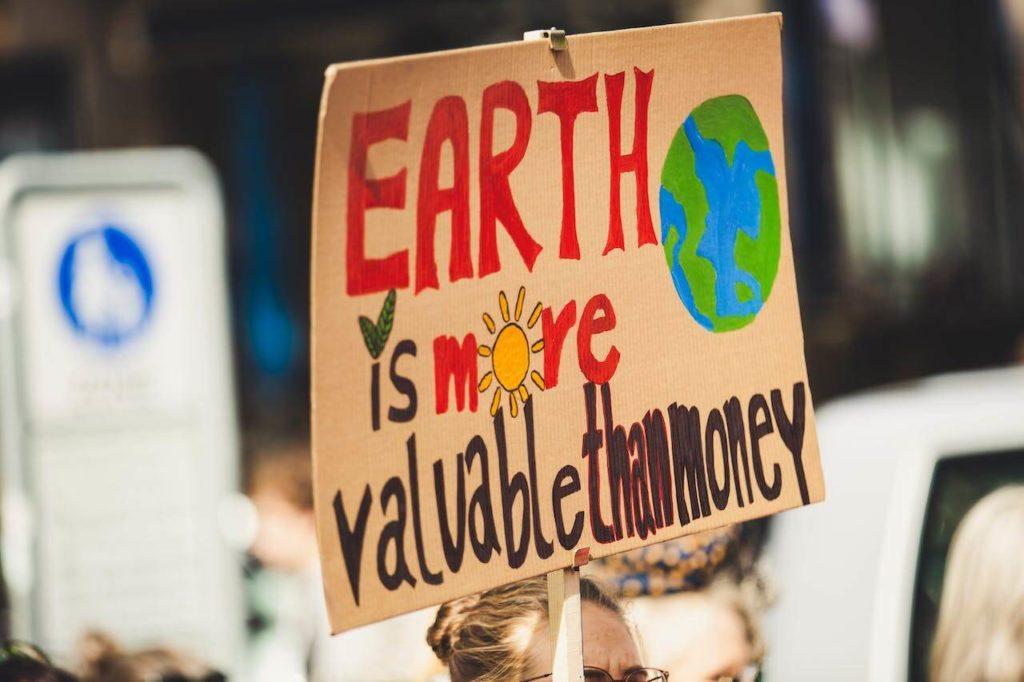As a seasoned IB writer and tutor, I’ve noticed how crucial it is for students to grasp the political issue meaning, particularly in the context of Global Politics. Reflecting on my extensive experience with the IB curriculum, I can affirm that political issues in Global Politics subject form a substantial part of your academic path. This article highlights these complex topics, focusing on their evolution from 2022 to 2023 and how they influence international relations and national perspectives.
What Is the IB Global Politics Course?
The International Baccalaureate (IB) Global Politics course is an engaging and dynamic subject in the IB Diploma Programme, aimed at students aged 16 to 19. This course focuses on fundamental political concepts, such as power, liberty, and equality, in various contexts and levels. It allows students to develop an understanding of the local, national, international, and global dimensions of political activity, as well as the theories that help to explain these complex relationships. Now, let’s talk about aspects of the IB Global Politics course.
Political Engagement
The course emphasizes active engagement with the political processes and issues that are central to the world we live in. Students are encouraged to think critically about political issues and form opinions and viewpoints.
Global and Local Issues
Students study a wide range of contemporary and historical political issues, focusing on understanding how they have developed and their impact on different communities and societies. It is about human rights, environmental concerns, and international conflicts.
Theory and Practice
The course combines theoretical understanding with independent research. Students learn about fundamental political ideologies, theories, and institutions and apply this knowledge to real-world scenarios and case studies.
International-Mindedness
A core component of the IB philosophy is the development of international-mindedness. In Global Politics, students discuss political issues from multiple perspectives and learn to appreciate the diversity of political beliefs and practices worldwide.
Assessment Methods
Assessment in IB Global Politics includes written examinations, oral presentations, and coursework. A distinctive feature of the course is the engagement activity, where students actively engage with a political issue of their choice and reflect on their experiences.
Skills Development
The course aims to develop various skills, including analytical thinking, deep research on a chosen topic, presentation, and debate. These skills are vital for the study of politics and are highly valued in higher education and the workplace.
Political Issues in IB Global Politics Course
In the IB Global Politics course, students discuss various political issues central to understanding the complex interplay of politics’s local, national, international, and global dimensions. The course is designed to engage students with the contemporary political issues that shape our world.
Here are some key political issues often covered in the IB Global Politics course:
- Human Rights. It includes the study of the nature, origin, and effectiveness of human rights, including their legal and ethical foundations. Students might research issues like gender equality, minority rights, and freedom of expression.
- Development. This topic covers nations’ political, economic, and social development. Students might examine poverty, inequality, economic policy, and sustainable development issues.
- Peace and Conflict. Here, students focus on the causes and resolutions of internal and international conflicts. It might include studying specific conflicts, peacekeeping efforts, and the role of international organizations like the United Nations.
- Environment and Global Commons. This area involves studying political issues related to the environment, such as climate change, resource management, and environmental policies at both national and international levels.
- Power and Sovereignty. It includes exploring the concept of state sovereignty and the shifting nature of power in the globalized world. Topics might involve the study of superpowers, non-state actors, and transnational corporations.
- Globalization. Students examine globalization’s political, economic, and cultural aspects, including its impact on state sovereignty, global governance, and cultural identity.
- Technology and Politics. It’s an increasingly relevant topic, exploring how technological advancements affect political engagement, surveillance, privacy, and the nature of warfare.
- Political Beliefs and Ideologies. It involves studying political ideologies like liberalism, conservatism, socialism, and feminism and how they shape public policies and political systems.

In addition to these topics, the Global Politics subject emphasizes skill development in critical thinking, analysis, evaluation, and communication.
Political Issues 2022: A Retrospective Analysis
In 2022, several political issues dominated the global landscape, reflecting contemporary world politics’ complex and interconnected nature. These issues ranged from ongoing international conflicts and geopolitical tensions to internal political changes and environmental concerns.
COVID-19 Pandemic Recovery
Although the COVID-19 pandemic began in 2020, its repercussions continued influencing global politics in 2022. Governments faced challenges in vaccine distribution, managing economic recovery, and addressing the pandemic’s impact on education, healthcare, and civil liberties.
Climate Change and Environmental Policy
The urgency of addressing climate change remained a significant political issue in 2022. Debates and policies focused on reducing carbon emissions, transitioning to renewable energy, and tackling environmental degradation, with significant discussions at international forums like COP26.
Russia-Ukraine War
The Russia-Ukraine war, which escalated significantly in 2022, had wide-reaching implications for international relations, security, and geopolitical stability, particularly in Europe. It affected global and national sovereignty, territorial integrity, and international law discussions.
U.S.-China Relations
The relationship between the United States and China continued to be a significant issue in global politics, with tensions surrounding trade, technology, human rights, and territorial claims in the South China Sea.
Human Rights and Democracy Movements
Across various regions, there were significant concerns about human rights violations and the state of democracy. Movements for democratic governance, freedom of speech, and human rights were at the forefront in countries experiencing political unrest or authoritarian governance.
Economic Inequality and Inflation
The global economy faced challenges such as rising inflation, economic inequality, and the impacts of the pandemic on global supply chains. These economic issues influenced political decisions and policies in many countries.
Cybersecurity and Digital Governance
With society’s increasing digitization, cybersecurity, data privacy, and the regulation of digital platforms gained prominence in political discussions, highlighting the need for robust digital governance frameworks.
Migration and Refugee Crises
Political debates around immigration policies, border control, and the treatment of refugees continued to be significant, especially in light of conflicts and economic disparities driving migration.
Current Landscape: Political Issues 2023
As of early 2023, the global political landscape continues to be shaped by a range of complex and interrelated issues. These issues reflect the ever-evolving nature of international relations, economics, social justice, and technological advancements.
By the way, in our blog, you can also find some topics for your extended essay on Global Politics.
Energy Security and Transition
The global energy landscape is shifting significantly, with an increased focus on transitioning to renewable energy sources. Issues around energy security, particularly amid geopolitical tensions and climate change concerns, are high on the political agenda. The debate includes managing the decline of fossil fuels and investing in sustainable energy alternatives.
Rising Nationalism and Populism
There has been a notable rise in nationalist and populist movements in various parts of the world. This trend often challenges traditional political establishments and international cooperation, impacting immigration policies, trade, and multilateral agreements.
Global Economic Disparities
Economic inequality within and between countries continues to be a pressing issue. The pandemic has exacerbated these disparities, leading to increased scrutiny of global economic systems and discussions about potential reforms like wealth taxes, universal basic income, and debt relief for developing countries.
Technological Disruption and the Future of Work
Rapid technological changes, including automation and digitalization, significantly impact labor markets and the nature of work. Political discussions revolve around addressing the challenges of job displacement, reskilling workers, and regulating emerging technologies like AI.
Social Justice and Equality Movements
Movements advocating for social justice, including racial equality, gender equality, and LGBTQ+ rights, remain influential. These movements challenge existing structures and norms, pushing for legislative and social changes.
Global Health Policy and Equity
Beyond dealing with pandemics, there’s a growing focus on global health equity, including access to essential medicines, vaccines, and healthcare services. Debates center on improving health systems, addressing non-communicable diseases, and combating health-related misinformation.
Environmental Conservation and Biodiversity
Conservation of natural habitats and biodiversity is gaining attention as a critical aspect of the environmental agenda. Political discussions increasingly focus on protecting ecosystems, combating wildlife trafficking, and preserving natural resources.
Urbanization and Smart Cities
With the continuing trend of urbanization, the development of smart cities that use modern technology for sustainable and efficient urban living is becoming a key area of focus. It includes addressing urban planning, public transportation, and housing challenges.
Education Reform and Accessibility
The future of education, particularly in terms of accessibility and adapting to technological advancements, is a topic of growing importance. Discussions involve improving educational systems, addressing digital divides, and preparing students for a rapidly changing world.
Space Exploration and Regulation
As space exploration advances, issues related to the regulation of space activities, including space traffic management, the exploitation of extraterrestrial resources, and the militarization of space, are emerging as new political frontiers.

Need help with your academic writing?
From research and analysis to structuring and editing, our skilled mentors will be by your side, helping you write exceptional work that meets the word count and stringent IB criteria and reflects your passion for the selected IB group.
The Bottom Line
As an experienced IB writer, I encourage you to engage with these political issues actively. Whether through classroom discussions, independent research, or simulations like Model United Nations, your involvement is critical to developing a nuanced understanding of global politics.
By the way, if you need help with academic writing, our team at Extended Essay Writers is always ready to assist. Our experts have extensive knowledge of various IB subjects.







